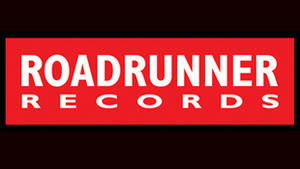
In a band? Have no idea how to go about getting a label to take you seriously? We've got the answers you're looking for.
In our new series, "Dear Record Label," we went to Roadrunner Records -- home of Slipknot, Rob Zombie, Opeth, Megadeth, Kenny Wayne Shepherd, Trivium and more -- and asked them the tough questions that young bands should know the answers to. Each week, we'll be bringing you advice from members of the Roadrunner staff to try and get you on track to get noticed.
This week, the advice comes from Roadrunner Records Vice President of A&R and Creative, Dave Rath.
Q: My band is unsigned, why should I considering finding management?
DAVE RATH: Any quality unsigned act will have people clamoring to work with them. That being said, an artist should hold on to the controls of their own destiny as long as they can. The time to allow someone in to represent an act usually occurs when the tasks of handling their own business begin to conflict with creation of the art. There is usually a point at which keeping up with the business of creating the art becomes distracting to the art itself.
As an artist becomes more successful, there is a need for some distance between the artist and those wishing to do business with them. Negotiations can sometimes be unpleasant, and the artist can sometimes be better served by being at arm’s length from the often necessary back and forth that occurs at certain levels of the business. That doesn’t mean the artist should be insulated from the realities of their business; an artist should know what is happening and be the ultimate decision maker. They should surround themselves with representation that has experience, wisdom, enthusiasm and skill so the artist can be properly advised on what decision is best for them
As an A&R person, I find it impossible to work effectively without full access and direct free flowing dialogue with every artist I work with. Even the very best managers can’t express the creative intentions of their artists as well as the artist can. A good manager will step aside and allow those conversations to happen. On the other hand, business discussions require a different tone. I find I can get more accomplished when discussing things such as money and contractual obligations with a manager rather than directly with the artist. A manager can take the emotion out of the business discussion and allow the conversation to be more matter-of-fact. As an artist, you want someone to battle on your behalf without getting you directly involved in the fight.
Get The Pick Newsletter
All the latest guitar news, interviews, lessons, reviews, deals and more, direct to your inbox!
There is a psychological side to having a manager as well. I hate to admit it, but if an act looking to work with a record company has no representation whatsoever, it’s not very difficult to figure out why that might be the case.
And if you're an unsigned band, be sure to check out Roadrunner's Sign Me To website, which allows unsigned bands to display their music, move up charts based on fan ratings, get reviewed by Roadrunner staff and maybe even get signed!
“The rest of the world didn't know that the world's greatest guitarist was playing a weekend gig at this place in Chelmsford”: The Aristocrats' Bryan Beller recalls the moment he met Guthrie Govan and formed a new kind of supergroup
“We hadn’t really rehearsed. As we were walking to the stage, he said, ‘Hang on, boys!’ And he went in the corner and vomited”: Assembled on 24 hours' notice, this John Lennon-led, motley crew supergroup marked the beginning of the end of the Beatles









